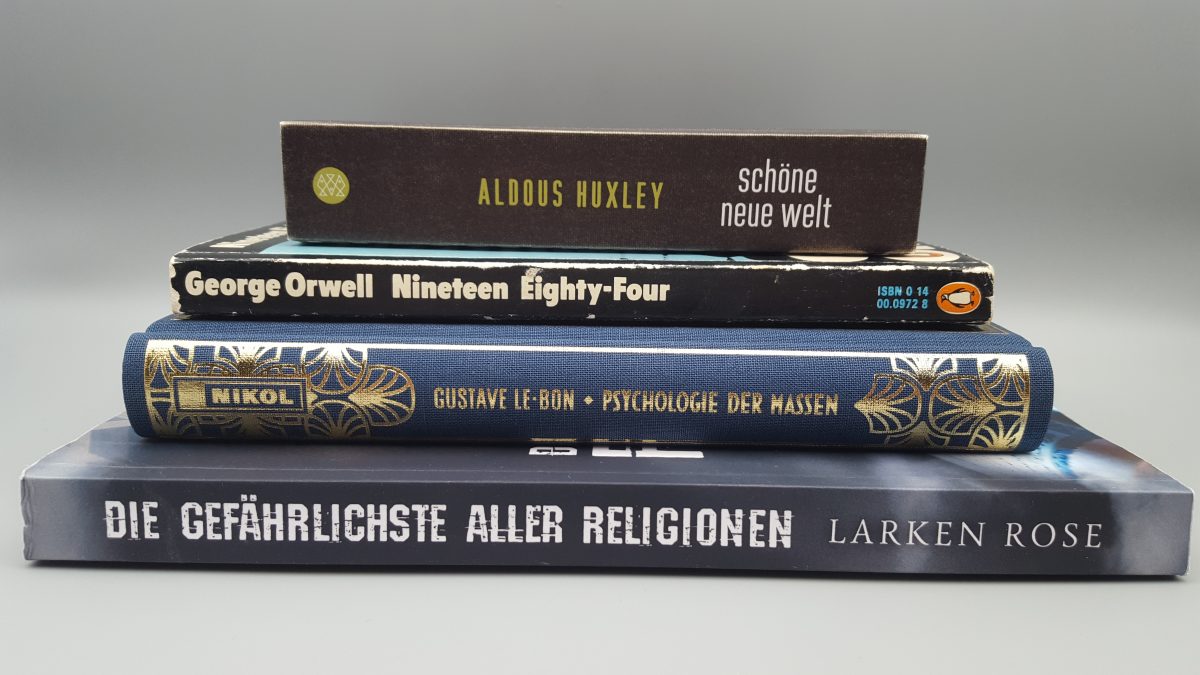Public education is presented as a foundation for success in life. Still, it doesn’t prepare students for careers in business and entrepreneurship. Witnessing the development in the past years, I can’t get rid of the impression it’s on purpose. It seems to me our youth is moulded into a working-class caste, similar to the dystopian novel Brave New World by Aldous Huxley.
I went through the same public education. I was in schools considered good and still did not learn many skills I use today. Luckily, my years were about engineering, so I got a sense of math and logic. The worst thing: not once were we encouraged to question the assignment. Not once were we explained why we learned, what we learned. It was always about getting a task, completing it as well as possible and being rewarded. A mindset that is perfect for workers. Not so for people who want to take their lives into their own hands. Not being taught these options is a grave systemic disadvantage for everyone who does not have the opportunity to attend expensive private schools.
This is one of the reasons why wealthy families often stay wealthy and low-income families remain poor. Knowledge and financial literacy do not transcend the borders of the castes. Nowadays, the information that is needed to overcome this is readily available. Sadly, the mindset of acquiring this information is not part of the curriculum of public schools. So everybody is responsible for bringing that knowledge into his family so they know that there is another way.
Here are a few points why public schools
- Lack of emphasis on real-world skills: Public education focuses on theoretical knowledge rather than practical skills needed in the business world. This leaves students ill-prepared to run a business or start a company.
- Limited exposure to entrepreneurship: Many public schools do not offer courses or programs designed to teach students about entrepreneurship. Students don’t have access to resources or mentorship that would help them learn about this field.
- No access to networking opportunities. Public schools may not have the same resources or connections to the business world as private schools or specialized programs. This makes it more difficult for students to build the networks and relationships crucial for starting and growing a business.
- Limited opportunities for hands-on experience: Public schools may not provide students with opportunities to work on real-world projects or internships, which can be essential for gaining the skills and experience needed to start a business.
- Lack of diversity: Public education is not tailored to individual needs. It’s a one size fits all approach, which does not cater to the diverse backgrounds, experiences and interests of students.
- Lack of inspiration: Public education does not provide the necessary inspiration to pursue business and entrepreneurship, it may not foster the creativity and innovation needed to be a successful entrepreneur.
- No encouragement of critical and out-of-the-box thinking: the whole process of how the material is taught and tested does not encourage creative thinking but following a predetermined workflow.
Today it is easy to start getting a glimpse into the world of entrepreneurs with a few books. These are the ones I recommend reading to get you started.
Robert Kyosaki’s Rich Dad, Poor Dad
While it is most likely fiction and not a real story, “Rich Dad, Poor Dad” by Robert Kyosaki shows the different mindsets of employees vs entrepreneurs. It presents the reader with young Robert, who was raised with influences from both sides. It is easy to read and makes its point very clear, as it always presents both sides of the coin. Is this a comprehensive introduction that will tell you everything about business? No, but it is a very easily understandable start on your journey to get rid of the mentality that slaving away in a job is the best way to provide for you and your family.
Seth Godin’s Tribes
“Tribes” is a book by marketing expert Seth Godin that explores the concept of tribes and how they can be used to create change and build a movement. The book shows that the internet and social media made it easier for people to form tribes around shared interests and that leaders of these tribes have the power to create change in their communities and the world. He encourages readers to embrace their leadership potential and create a tribe around their ideas, products, or services.
The Practise by Seth Godin
“The Practice” is another book by Seth Godin. It features the idea of becoming great at something through consistent and deliberate practice. Success is not just about talent or luck but about consistently putting in the time and effort to improve. Godin encourages readers to find their “art” and practice it daily. He also touches on the importance of setting goals, getting feedback, and learning from failure as part of mastery.
The Creative Habit: Learn It and Use It for Life by Twyla Tharp
“The Creative Habit” complements “The Practice” as it explores the idea of developing a daily creative practice and the habits essential for creativity and success. It covers key concepts such as setting goals, overcoming obstacles, and the role of discipline and routine in the creative process. It also provides practical exercises and strategies to help readers cultivate their own creative habits and achieve their goals.
Rework: Change the Way your Work forever by David Heinemeier Hansson and Jason Fried
“Rework” is a book by entrepreneurs David Heinemeier Hansson and Jason Fried that offers a different perspective on how to run a business and do work. The book argues that traditional business practices and models are often slow, inefficient, and unnecessary. Instead, the authors propose a new approach to work that emphasizes flexibility, simplicity, and staying small. They advocate for ideas such as working smarter, not harder, embracing constraints, and saying no to unimportant tasks. The book is written in a conversational and easy-to-digest style and is filled with practical advice and real-life examples of companies that have succeeded by breaking the rules and doing things differently.
These books give you a glimpse into a world beyond slave mentality and the rat race. Embrace their ideas, and your subconsciousness will see opportunities that work for you.
Book links in this article are affiliate links which will take you to Amazon.




